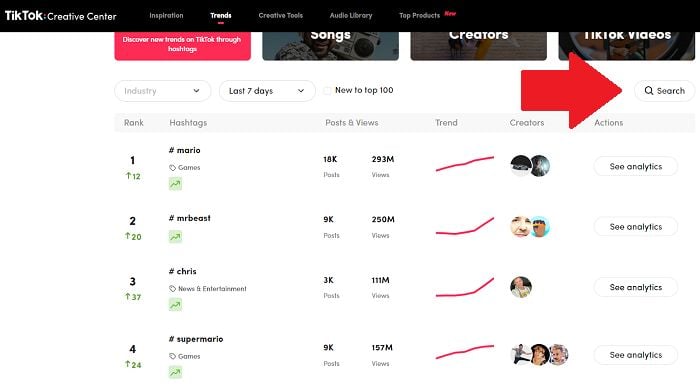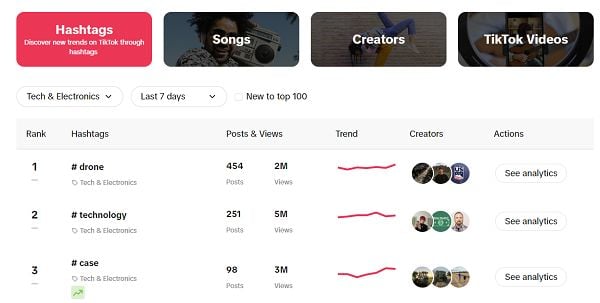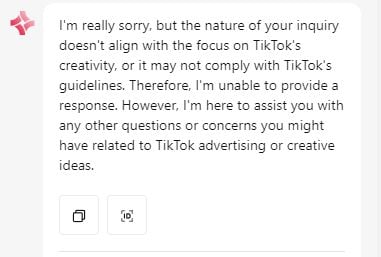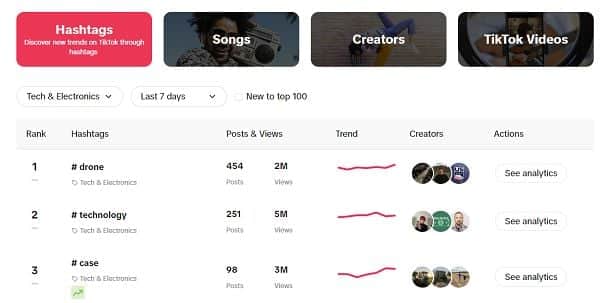Here’s an update which could impact your TikTok planning.
As per The New York Times, TikTok has removed the capacity to search for specific hashtags within its Creative Center tools, which will limit your capability to glean insight into the popularity, or not, of certain tags.
TikTok’s Creative Center tools enable you to dig deeper into various usage trends, which can be invaluable for your campaign planning. But according to the NYT, TikTok has removed the hashtag search element due to concerns that the data was being used to highlight potential platform censorship.
As per NYT:
“The company’s critics had harnessed the tool to argue that TikTok, which is owned by the Chinese company ByteDance, fails to adequately moderate content on the app and that Beijing influences the posts that appear on it.”
You can see, in this image (from 2022) that there used to be a magnifying glass search option at the top right of the listing.

That’s now been removed, with TikTok explaining to NYT that the tool is now specifically focused on sharing data on the top 100 hashtags within different industries.

I even tried to get around this by using the new Creative Center AI chatbot to find the now forbidden information, and it gave me this response.

The update is not overly surprising.
TikTok has long held that it’s not the place for political discussion, as it works to distance itself from divisive debate, as well as further analysis into its links to the Chinese Government. Various reports have suggested that the CCP takes a special interest in TikTok, especially the local Chinese version of the app, but TikTok itself, which it still facing a potential ban in the U.S. because of geopolitical tensions, has logically sought to play down and avoid any such associations where it can.
Though that, in itself, could be viewed as an act of censorship. While TikTok would argue that removing hashtag search from this element will keep things more aligned with the market research purpose of the tool, some will counter that TikTok’s simply looking to quell research into user activity, limiting further scrutiny on the app.
Which it is, but there is also a valid argument around the purpose of this tool, depending on how you view it.
In any event, for marketers, it removes one search element from TikTok’s Creative Center tools, though there are still many other research options that are hugely valuable for analysis.



